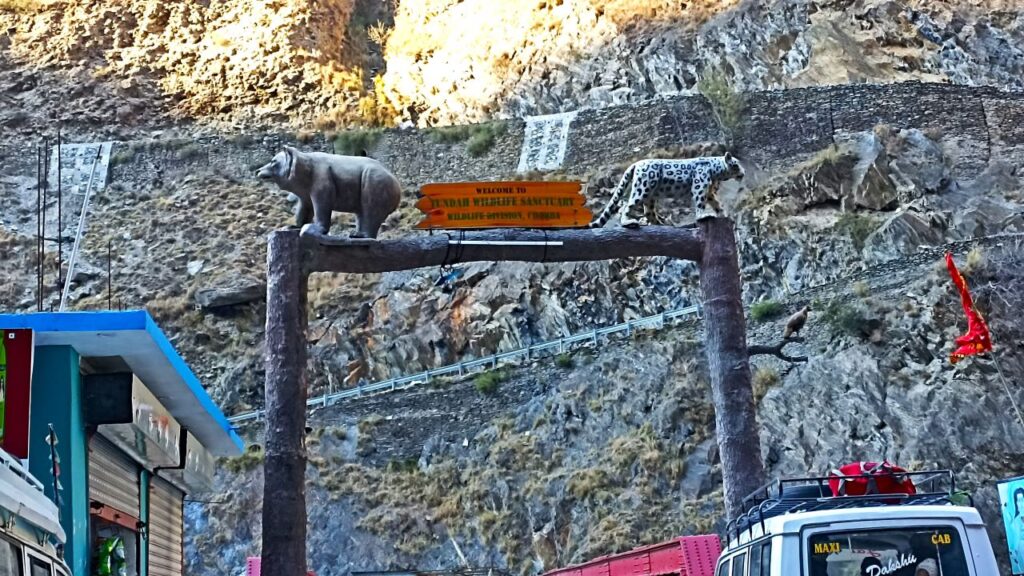The Tundah wildlife sanctuary by the name of Tundah is situated at junction of Tundah Nalla and Ravi River and is at a distance of 45 kilometers from Dalhousie. This sanctuary is linked by an eastern forest corridor with the Kugti wildlife sanctuary and the altitude of Tundah sanctuary ranges between 2074 to 5532 meters. This breathtakingly beautiful Tundah sanctuary provides residence to many different wildlife animals such Ibex and Pheasants. Other than that some of the sanctuary area is covered with moist deodar forest as well as some with mixed coniferous forest, alpine pastures and moist temperate deciduous forest.
| Location | Bharmour, Himachal Pradesh |
| Nearest access | Bharmour at a distance of 15 kilometers |
| Main wildlife found | Ibex, Pheasants and Himalayan Tahr |
| Coverage area | 64.22 square kilometers |
| Languages | Himachali, the local language called Pahari and Hindi |
| Best season | May till June plus September till October |
Weather and Best Time to Visit Tundah wildlife sanctuary:
The best months to plan a trip to Tundah wildlife sanctuary are from May to June and September till October. Starting from December and till March the temperature in the area highly drops and sometimes reaches below the freezing level up to -10°C and the months of March and April are cool and shiny and the temperature rises after April and keeps rising till the rains end by the end of July. The October and the beginning of November are dry and the winters sweep in the middle of the month of November.
How to Reach:
The visitors can plan a trip from Delhi by a bus or a train to Pathankot and from there to Chamba and then reach Bharmour. From Bharmour tourists can take taxi to tundah region about 15 kilometers.
Wildlife:
Flora: Kail, Deodar, Poplar, Robinia, Walnut, Fir, and Sprucem and more.
Fauna:Ibex, bear, langur, leopard, musk deer, Himalayan tahr, Himalayan fox, Himalayan shrew, rhesus macaque, common giant flying squirrel, Indian bush rate, jackal, barking deer and more.
Avian-Fauna: Pheasants, Stachyris pyrrhops, Megalaima rubricapilla, Merops orientalis, Pycnonotus leucogenys, Pycnonotus cafer, Hypsipetes madagascariensis, Melophus lathami, Butastur teesa, Erithacus brunneus, and more.
Timings and Fees:
There is no fixed rule for entry in Tundah wildlife sanctuary for the visitors.
Where to Stay in Tundah wildlife sanctuary:
The visitors can either find a place to stay inside the sanctuary in the form a rest house or they can also choose the rest house which is built on the boundaries of the sanctuary. Both the rest houses in Tundah have 2 and 4 beds respectively. Alternatively, people can stay in Hotel Bharmour View in Bharmour.
General Information:
- The visitors must not trouble the animals as the night animals rest in the day time. The visitors must also not tease the animals in any manner.
- The tourists are advised to have a lot of water along with them and opt for an attire which is loose fitting and simple.
- No flash photography or smoking is allowed in the sanctuary premises.
- The visitors are prohibited to pick any insects or plants in the sanctuary.
